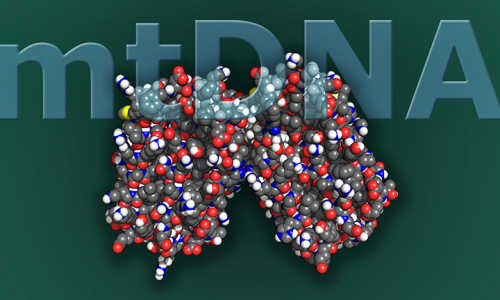The thousands of mitochondrial DNA (mtDNA) molecules present in each cell are known primarily for their role converting food and oxygen into energy. But Yale researchers have identified an unexpected relationship between mtDNA and the innate immune response.
The Yale team and co-authors at the University of Alberta and Washington University School of Medicine made this discovery while examining mouse models of mtDNA “stress,” or damage that normally happens during disease and aging. The specific mouse model examined was engineered to lack a gene that supports normal mtDNA stability. What the researchers observed was an antiviral response. “We were surprised that there was an interferon response, which you would see if you were being infected by a pathogen,” said Gerald Shadel, professor of pathology and genetics at Yale School of Medicine. “We had cells that looked like they were infected with a virus but they were not.”
This unexpected antiviral activity, without the presence of a virus, may point to new areas of research on human diseases. “It’s pretty well accepted that mitochondria are involved in inflammatory pathology like that seen in autoimmune diseases,” said Shadel. The study, however, suggests a new source of inflammation that could promote common diseases and aging, he added.
The researchers also tested the effect of certain viruses, such as the herpes simplex virus (HSV), on mtDNA and the antiviral response. They discovered that HSV actually attacked mtDNA during infection, making mtDNA stress or instability a normal, and necessary, part of the way that a cell senses and responds to infection.
Shadel and first author on the study, Yale postdoctoral fellow Phillip West, plan to further explore these phenomena in studies of aging and human illness. “We found a pathway that is leading to an antiviral, pro-inflammatory state. We want to know if the mtDNA instability triggers these pathways, contributing to disease and age-related pathology,” Shadel explained. The first area to which Shadel and his team plan to apply this new knowledge is cancer.
The study was published online on Feb. 2 by Nature.
Story Source:
The above story is based on materials provided by Yale.





